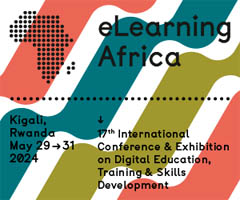It's Necessary to Invest More
Brussels, November 2005 - The European eLearning Industry Group (eLIG), a consortium of forty leading ICT and eLearning content providers today called upon the European Commission and the member states to adopt a comprehensive and cohesive eLearning strategy to stimulate the ICT and digital content markets in Europe, thus enabling Europe to become a World leader in this emerging market.
According to Mr. Fabrizio Cardinali, eLIG vice-chairman and CEO, Giunti Interactive Labs, eLearning has the potential to become a key engine in driving growth and creating more and better jobs in Europe. Digital content he said is at the heart of eLearning, and the more technology spreads into classrooms and our lives, the more the need for high quality and media-rich content. The creative content sector has become a major source of next generation jobs across the world.
This sector provides true added value to the information society, and Europe must foster innovation, growth, and prosperity for this industry as part of the Lisbon process. Mr. Arnaud Valette of Editis and Chairman of the eLIG's Public Policy Group added that the European content industries are facing the challenges of convergence of media-related technologies and adoption of multi-format editorial workflow in a situation of industry fragmentation and market failures. The transformation of the content industries has only begun - the challenges are huge and range from the protection of investments, to establishing metadata and description standards for truly interoperable content. eLIG considers this as a key subject for advancing the Lisbon process.
Among its recommendations the eLIG calls for:
- A better balancing of public investment between software and hardware.
- Specific actions to support Europe's cultural and linguistic diversity (e.g. public funding for adapting content and making it accessible via Digital Libraries under sustainable licensing conditions)
- Respecting Intellectual Property Rights and the introduction of balanced Licensing Conditions.
- Maintaining fair competition conditions while exploring new business models based on Public, Private Partnerships (PPPs).
- More education & training for all citizens in the use of ICT.
- The development and deployment of a common core of content, in terms of skills.
- The deployment of interoperability and open standards for content exchange, re-usability and re-localisation: more R&D is needed on these topics.
- The need for advanced broadband for the development of rich content.









